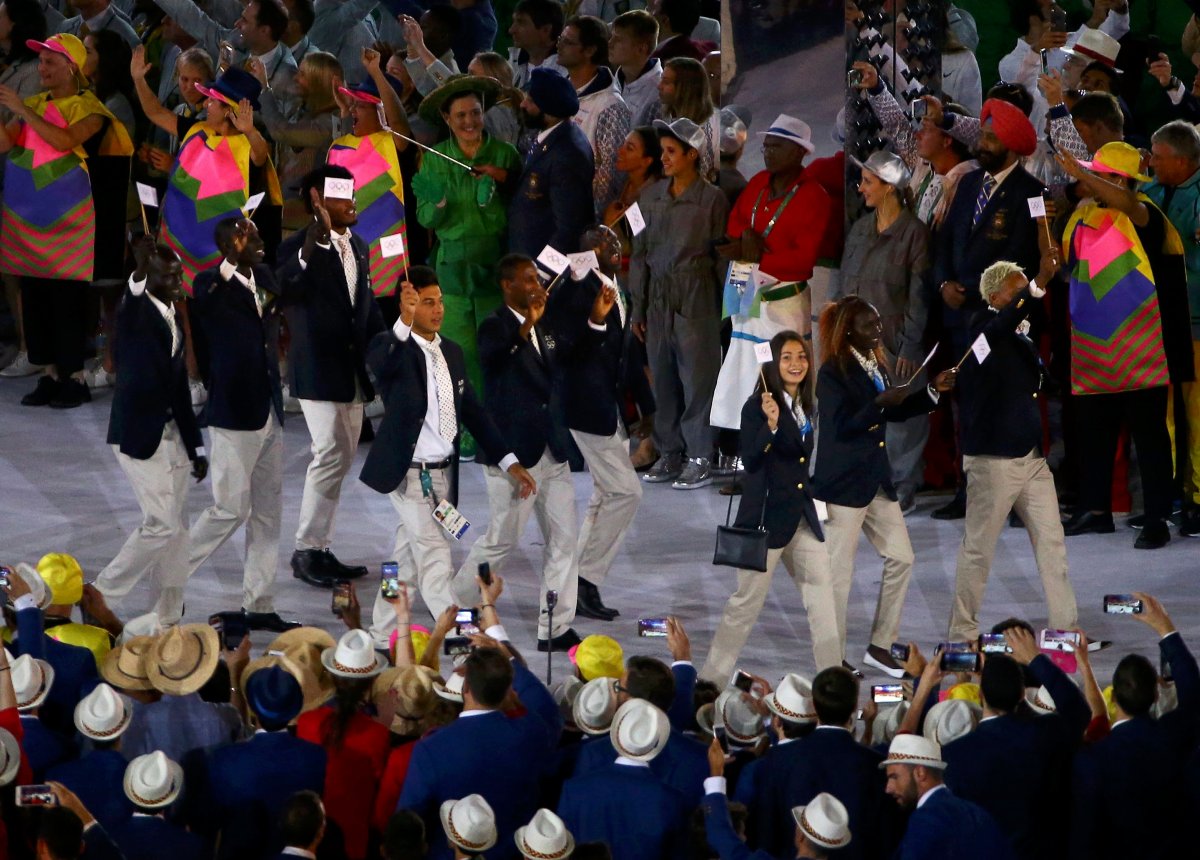The Refugee Olympic Team has made history by being the first of its kind.

They arrived at the Olympic Athlete’s village on Aug. 3, two days before the Opening Ceremonies, to cheers, dancing and music, according the official Rio 2016 website.
Though none of them have won medals, most of them say the chance to compete at the Olympics is enough. Here’s a look at how the athletes have done:
Paulo Amotun, athletics
Paulo Amotun was formerly from South Sudan, and has been training in Kenya. He competed in the men’s 1500-metres on Tuesday, Aug. 21. Amotun posted a time of 4:03.96 seconds but didn’t qualify for the semi-finals.
“I was one of those refugees there in the camp, and now I have reached somewhere special,” he told the UNHCR in June. “If I perform well, I will use that to help support my family, and my people.”
Rami Anis, swimming
Rami Anis didn’t qualify for the men’s 100m freestyle on Tues. Aug. 9. Though the Syrian finished sixth in his heat, the crowd cheered loudly for him, making him the star of the pool.
He also came 40th in the 100m butterfly
“It’s wonderful to be the star of an event like this, at which refugees have drawn so much attention,” Anis said after his race, rio2016.com reports.
“This is a dream and I don’t want to wake up too soon.”
Yiech Pur Biel, athletics
Yiech Pur Biel came to the refugee team from South Sudan and he finished last in the men’s 800m race on Friday. He hopes to inspire other people in his position.
“I can show to my fellow refugees that they have a chance and a hope in life,” Biel told the UNHCR in June.
Yolande Bukasa, judo
Yolande Bukasa competed in her weight class in Judo on Thursday but didn’t win her first match.
“I’m very happy even having lost, because I had the chance to fight at the Olympics,” she said after her match. “Someday I think there will be a plaque commemorating the fact that I took part in the 2016 Olympics.”
James Nyang Chiengjiek, athletics
James Nyang Ciengjiek, from South Sudan, competed in the men’s 400m Friday and came in last place.
He told rio2016.com that he was enjoying interacting with the other athletes.
“The interaction between the peoples in the athletes’ village is one of the best things of the Olympic Games. It is absolutely incredible,” he said.
Yonas Kinde
Yonas Kinde from Ethiopia competed in the men’s marathon on Sunday. He came in an impressive 90th out of the 140 people who finished the race.
“It’s a big motivation.”
Anjelina Nadai Lohalith, athletics
Anjelina Nadai Lohalith, from South Sudan, competed in the women’s 1500m on Friday. She came 40th overall and didn’t qualify.
But she’s said it doesn’t matter how she places in the race, it’s just important she competed.
“It will inspire other refugees because wherever they are they will see that they are not just the ‘other people’,” she told the UNHCR in June. “They will have that encouragement that they can compete in anyway.”
Rose Nathike Lokonyen, athletics
Rose Nathike Lokonyen, a 23-year-old from South Sudan, raced in the women’s 800-metres on Wednesday, Aug. 17.
She posted a time 2:16.64 seconds and came in 61st.
“My dream, my first priority, is to help my parents and my siblings and then after that to help my fellow refugees,” she told rio2016.com.
Yusra Mardini, swimming
Yusra Mardini may have come 41st overall in women’s 100m butterfly but she was first in her heat, which she said felt “amazing.”
“Everything was amazing. It was the only thing I ever wanted was to compete in the Olympics,” she said after match. “I had a good feeling in the water. Competing with all these great champions is exciting.”
She also competed in women’s 100m freestyle, but didn’t qualify.
Mardini made headlines earlier this year when she and her sister jumped into the water to pull their boat to safety while fleeing Syria.
Popole Misenga, judo
The 24-year-old from the Congo won his first Judo match on Wednesday but lost his second when he was pitted against top-ranked South Korean Dongham Gwak.
That didn’t stop the crowd from chanting his name during the match, though. He told reporters after the match that it was an honour to face a world champion.














Comments